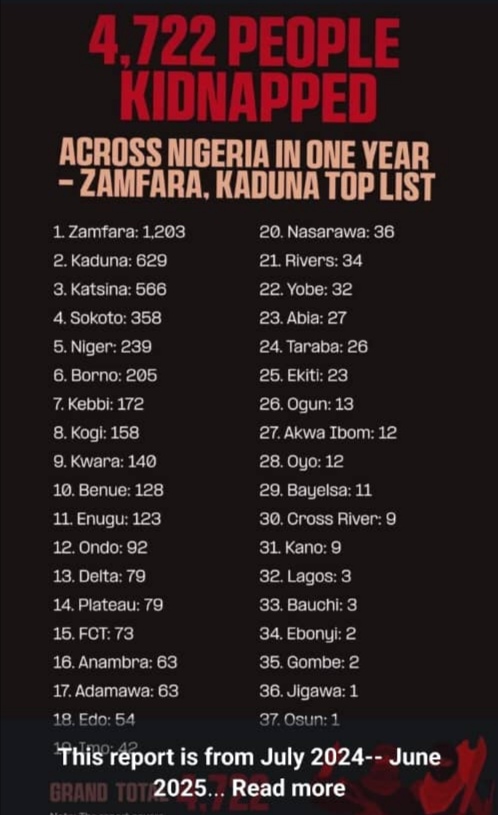In a striking revelation that underscores the challenges facing road safety in Nigeria’s Cross River State, the Commissioner for Transportation, Mr. Ekpenyong Cobham, disclosed that only approximately 10% of drivers in the state have received formal training at accredited driving schools. This statement was made during a sectoral workshop organized by the Federal Road Safety Corps (FRSC) state command in Calabar on Monday, September 1, 2025. The workshop, themed “Driving RS6.2 Excellence Through Productivity Enhancement,” aimed to address critical issues in traffic management and road safety. Cobham’s remarks highlight a systemic issue in the state’s transportation sector, raising concerns about driver competency, regulatory enforcement, and the broader implications for public safety. This article provides an in-depth analysis of the situation, exploring the underlying causes, implications, and potential solutions to the challenges facing Cross River’s transportation system.
The Context of the Revelation
The transportation sector in Cross River State, like many parts of Nigeria, is a critical component of daily life, facilitating the movement of goods, services, and people across urban and rural areas. However, the sector has long been plagued by issues such as unregulated driving practices, inadequate infrastructure, and a lack of adherence to traffic regulations. Commissioner Cobham’s statement during the FRSC workshop brought these challenges into sharp focus, emphasizing the low percentage of drivers who have undergone formal training as a significant barrier to achieving road safety and operational efficiency.
The workshop, held in Calabar, the state capital, was attended by key stakeholders, including representatives from the Nigeria Police Force, the Nigeria Security and Civil Defence Corps (NSCDC), and FRSC officials. The event served as a platform to discuss strategies for improving road safety, enhancing driver training, and fostering collaboration among agencies responsible for traffic management. Cobham’s disclosure about the low rate of driving school attendance was particularly alarming, as it points to a fundamental issue in the state’s transportation ecosystem: the prevalence of untrained or inadequately trained drivers on the roads.
According to Cobham, even among the 10% of drivers who have attended driving schools, many fail to apply the knowledge and skills they acquire, further exacerbating the problem. He also highlighted the existence of “transitory drivers”—individuals who transition from operating motorcycles to tricycles and eventually commercial vehicles without any formal training. This lack of structured education contributes to reckless driving, disregard for traffic laws, and a high incidence of road accidents, posing significant risks to commuters and pedestrians alike.
The Scale of the Problem
To fully grasp the implications of Cobham’s statement, it’s essential to consider the scale of the issue. Cross River State, with a population of over 4 million people, relies heavily on road transportation for economic and social activities. The state’s road network connects urban centers like Calabar to rural communities, supporting commerce, agriculture, and tourism. However, the low rate of driving school attendance suggests that the vast majority of drivers—potentially numbering in the tens of thousands—lack the formal training required to operate vehicles safely and responsibly.
The figure of 10% is particularly striking when compared to global standards. In many developed countries, such as the United Kingdom and the United States, obtaining a driver’s license requires mandatory training at accredited driving schools, rigorous testing, and adherence to strict regulations. In Nigeria, while the Federal Road Safety Corps has established guidelines for driver training and licensing, enforcement remains inconsistent, particularly in states like Cross River, where logistical and economic barriers limit access to formal training programs.
Cobham’s mention of “transitory drivers” further complicates the issue. These individuals, often from low-income backgrounds, begin their careers as motorcycle or tricycle operators before progressing to larger vehicles, such as buses or taxis, without acquiring the necessary skills. This progression is driven by economic necessity rather than a structured career path, resulting in a workforce of drivers who lack the technical knowledge and road safety awareness required to navigate complex traffic environments.
Challenges in Regulating the Transportation Sector
Commissioner Cobham’s remarks also shed light on the broader challenges facing the regulation of Cross River’s transportation sector. During the workshop, he noted that the state has no shortage of traffic regulations, but the primary issue is the “attitudinal” problem among drivers. This refers to a culture of non-compliance, where even trained drivers disregard the rules they were taught, and untrained drivers operate with little regard for safety protocols.
One of the key obstacles to effective regulation is the lack of enforcement. Cobham called on FRSC officials to resist the temptation to accept bribes and instead focus on objectively enforcing traffic laws. Corruption within the transportation sector, including the issuance of driver’s licenses without proper testing, has long been a concern in Nigeria. In Cross River, the problem is compounded by the high number of unlicensed drivers, some of whom obtain licenses through fraudulent means or bypass the process altogether.
Another challenge is the limited reach of accredited driving schools. In a state with significant rural populations, access to formal training facilities is often restricted to urban centers like Calabar. For many aspiring drivers, particularly those in remote areas, the cost and logistical challenges of attending a driving school are prohibitive. As a result, they resort to informal training methods, such as learning from friends or relatives, which do not provide the comprehensive education needed to operate vehicles safely.
Stakeholder Responses and Collaborative Efforts
The FRSC workshop provided a platform for stakeholders to address these challenges and propose solutions. Corps Commander Innocent Etuk, who spoke at the event, emphasized the importance of continuous training and retraining for FRSC officials to align with global best practices. He highlighted the introduction of a reward system for personnel who demonstrate excellence in traffic and safety management, signaling a commitment to improving operational efficiency.
The Commissioner of Police in Cross River, Rashid Afegbua, represented by CSP Uduak Boniface, commended the FRSC for organizing the workshop and called for stricter enforcement of driving tests and licensing procedures. Afegbua’s appeal underscores the need for a standardized process to ensure that only qualified individuals are issued driver’s licenses. Similarly, Charles Brown, Commandant of the NSCDC, praised the FRSC’s automation of the licensing process, which has reduced human interference and improved transparency.
These responses indicate a growing recognition of the need for collaboration among agencies to address the transportation sector’s challenges. The FRSC’s partnerships with the police, NSCDC, and other organizations are critical to enforcing regulations, educating drivers, and reducing road accidents. However, the effectiveness of these efforts depends on sustained commitment and adequate resources, both of which have been lacking in the past.
The Role of Driving Schools in Road Safety
Driving schools play a pivotal role in ensuring road safety by equipping drivers with the knowledge and skills needed to navigate roads responsibly. In Nigeria, the Federal Road Safety Corps has established guidelines for accredited driving schools, which must meet specific standards to operate legally. These standards include providing a structured curriculum that covers road signs, traffic regulations, vehicle maintenance, and defensive driving techniques.
However, the low attendance at driving schools in Cross River highlights a disconnect between regulatory requirements and practical implementation. For many drivers, particularly those in the commercial sector, the cost of attending a driving school—estimated at ₦15,000 to ₦50,000 in Lagos, and likely similar in Cross River—is a significant barrier. Additionally, the lack of awareness about the importance of formal training contributes to the prevalence of untrained drivers.
To address this issue, stakeholders must focus on increasing access to driving schools and making training more affordable. This could involve government subsidies for low-income drivers, mobile training programs to reach rural areas, and public awareness campaigns to emphasize the benefits of formal education. Furthermore, driving schools must be held to high standards to ensure that their graduates are well-prepared to handle the challenges of Nigeria’s roads.
The Impact of Untrained Drivers on Road Safety
The low rate of driving school attendance in Cross River has serious implications for road safety. Untrained drivers are more likely to engage in risky behaviors, such as speeding, overtaking in dangerous situations, and ignoring traffic signals. These behaviors contribute to the high incidence of road accidents in Nigeria, which claims thousands of lives annually. According to the World Health Organization, Nigeria has one of the highest road traffic death rates in Africa, with an estimated 20.5 deaths per 100,000 people.
In Cross River, the presence of transitory drivers exacerbates the problem. These drivers, who often lack even basic knowledge of road signs and regulations, pose a significant risk to themselves and others. For example, a motorcycle operator transitioning to a commercial bus may not understand the importance of maintaining a safe distance or checking blind spots, leading to collisions and other accidents.
The economic and social costs of road accidents are substantial. Families lose breadwinners, communities are disrupted, and the healthcare system is burdened with treating injuries. In Cross River, where tourism is a key economic driver, unsafe roads could deter visitors and harm the state’s reputation as a destination. Addressing the issue of untrained drivers is therefore not only a matter of public safety but also an economic imperative.
Proposed Solutions and the Way Forward
To tackle the challenges highlighted by Commissioner Cobham, a multi-faceted approach is needed, involving government intervention, private sector collaboration, and community engagement. Below are some proposed solutions:
Expanding Access to Driving Schools: The Cross River State government, in partnership with the FRSC, should invest in establishing more accredited driving schools, particularly in rural areas. Mobile training units could be deployed to reach remote communities, offering affordable and accessible training programs. Subsidies or scholarships for low-income drivers could further encourage participation.
Strengthening Enforcement: The FRSC and other agencies must intensify efforts to enforce licensing requirements and penalize unlicensed drivers. This includes conducting regular road checks, cracking down on corrupt practices in the licensing process, and ensuring that only qualified individuals are allowed to operate vehicles.
Public Awareness Campaigns: Educating the public about the importance of formal driver training is critical. Campaigns could use radio, television, and social media to reach a wide audience, emphasizing the risks of untrained driving and the benefits of attending accredited schools.
Collaboration with Transport Unions: Cobham expressed disappointment at the absence of transport union representatives at the workshop, highlighting the need for greater engagement with these groups. Transport unions play a significant role in the commercial transportation sector and could be instrumental in promoting compliance with training and licensing requirements.
Incentivizing Compliance: The FRSC’s reward system for high-performing personnel is a step in the right direction. Similar incentives could be offered to drivers who complete formal training and demonstrate safe driving practices, encouraging a culture of compliance.
Leveraging Technology: The automation of the driver’s licensing process, as commended by the NSCDC, should be expanded to ensure greater transparency and efficiency. Online platforms for license applications and renewals, as outlined on the FRSC’s official website, can reduce bottlenecks and discourage fraudulent practices.
Addressing Attitudinal Issues: Cobham’s emphasis on the “attitudinal” problem among drivers points to the need for behavioral change initiatives. Workshops, like the one organized by the FRSC, should be held regularly to educate drivers on the importance of adhering to traffic regulations and prioritizing safety.
The Broader Nigerian Context
The challenges facing Cross River’s transportation sector are not unique to the state but reflect broader issues in Nigeria’s road safety landscape. Across the country, the low rate of driving school attendance, weak enforcement of regulations, and prevalence of corruption have contributed to a persistent road safety crisis. In Lagos, for example, driving schools like A1 and SmartDrive have made strides in providing high-quality training, but their services are often inaccessible to low-income drivers. Similarly, in Abuja, accredited schools exist, but the cost and logistical barriers remain significant.
The federal government, through the FRSC, has taken steps to address these issues, including the introduction of the Nigerian Graduated Drivers Licensing Program (NGDLP), which emphasizes structured learning and testing. However, the program’s impact has been limited by inconsistent implementation and a lack of resources. Cross River’s experience underscores the need for localized solutions that account for the state’s unique economic and geographic challenges.
Conclusion
The revelation that only 10% of drivers in Cross River State have attended driving schools is a wake-up call for stakeholders in the transportation sector. It highlights the urgent need to address the systemic issues that contribute to unsafe roads, including inadequate training, weak enforcement, and attitudinal problems among drivers. While the FRSC’s workshop and the collaborative efforts of agencies like the police and NSCDC are steps in the right direction, much more needs to be done to ensure that Cross River’s roads are safe for all users.
By expanding access to driving schools, strengthening enforcement, raising public awareness, and fostering collaboration with transport unions, the state can make significant progress toward improving road safety. The economic and social benefits of such efforts—fewer accidents, reduced healthcare costs, and enhanced tourism—far outweigh the challenges of implementation. As Cross River navigates these issues, it has the opportunity to set a model for other Nigerian states, demonstrating that with commitment and innovation, the transportation sector can be transformed for the better.







